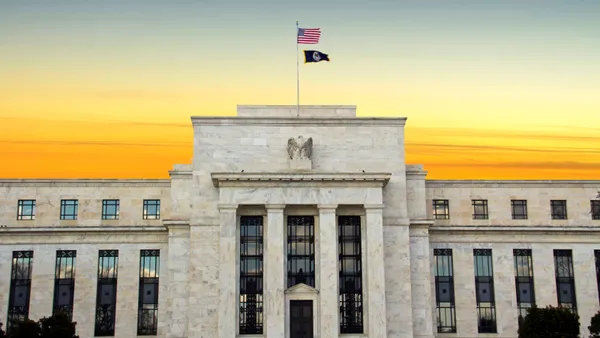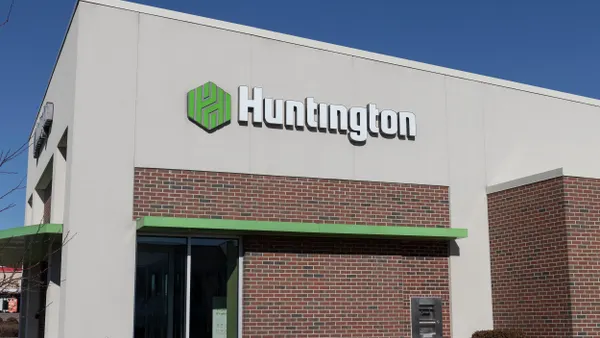Tom Nelson is executive vice president and chief investment officer at Reich & Tang, a fintech liquidity specialist.
Even while a large percentage of the financial industry workforce is operating from home, banks can take actions to help maintain the vibrant communities they serve.
Community banks are looking to make available as much liquidity as possible to fund Small Business Administration (SBA) loans for businesses trying to get through the coronavirus pandemic. Banks need to look at their balance sheets and figure out ways to free up capital. That means reducing collateral and improving liquidity ratios.
One solution for increasing liquidity involves moving collateralized funds to a Federal Deposit Insurance Corporation-protected reciprocal deposit program, where deposits received go through a network of banks so the full amount is FDIC-insured. Most states have passed legislation allowing local subdivisions, including school districts, to use these reciprocal networks as an alternative to collateralization. Further, the federal government passed legislation in 2018 allowing banks to treat these reciprocal deposits as core deposits.
Allotting space on their balance sheets allows banks to immediately increase lending to small businesses before having to scour for additional deposits, and small businesses have never needed community banking support more than now, as is evident by the number of SBA loan applications filed.
Clients can find ways to help, too. Consider a municipal government. Forty-eight states, at last count, have passed legislation approving the use of reciprocal deposit programs; they are no longer forced to use collateralized deposits. Municipal governments in states that recently adopted such legislation, including New Jersey, Georgia and Washington, may not realize they now have access to more competitive rates, more diverse sources for deposits, and are not limited to banks with large security portfolios.
By working with their banker to move municipal funds from a collateralized program into an FDIC-insured reciprocal deposit sweep program, municipalities open up liquidity for the bank, allowing them to serve other local businesses and organizations in need of financial assistance during the COVID-19 crisis. By converting collateralized deposits to reciprocal deposits, public fund managers can help make sure businesses can access these loans through their community bank.
Government entities should review price, flexibility and service with no extra cost or requirements. Moving public funds into the FDIC-insured reciprocal deposit programs gives banks more incentive to work with municipalities, driving competition and options.
Banks still have to look out for their own bottom line. During this crisis, some banks may not be interested in taking additional deposits that require collateral, limiting the number of banks available to municipal and public funds and, therefore, decreasing competition for municipal business. This is a negative for municipalities, as they want competition to improve rates and fight for their business.
With fewer banks vying for their business because of collateral requirements, municipalities may see lower rates, fewer services and less flexibility. They want to make sure they have access to as many banks as possible so banks will bid aggressively for their business. This could mean moving from a state-regulated collateral requirement program to an FDIC-insured reciprocal deposit sweep program. There is little to no impact to switch, and the funds are always liquid and protected by the full faith and credit of the federal government. It is in the best interest of all parties involved to make sure our local banks are stable, liquid and able to support the communities that depend on them.
Ultimately, it’s up to everyone to do whatever is possible to help out our communities during this unprecedented time. The actions taken — or not taken — right now will have long-lasting implications for years to come. Making sure banks have the liquidity they need to reinvest in their communities will be a driving force in preventing small businesses from closing down for good.












